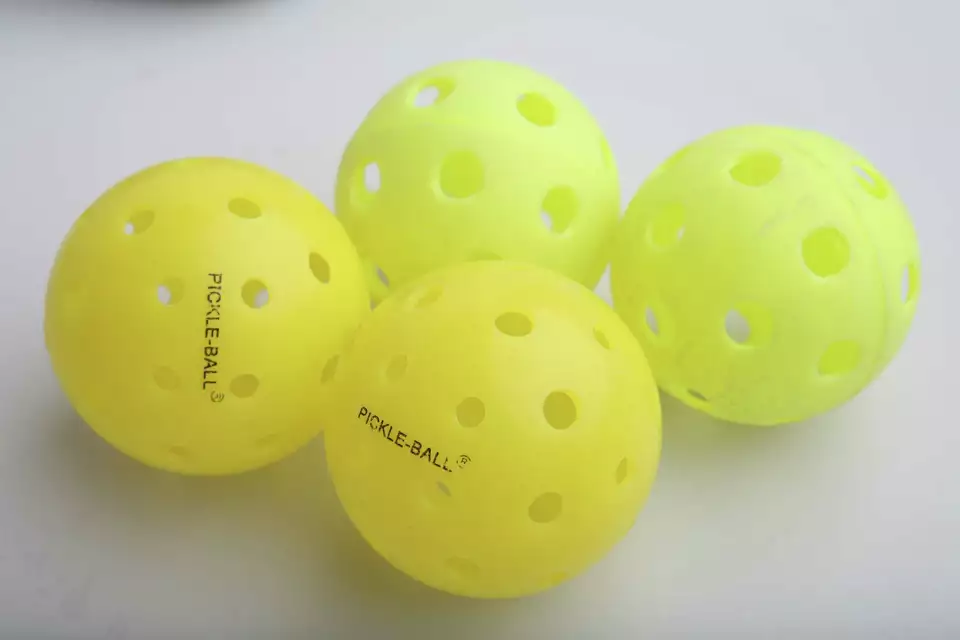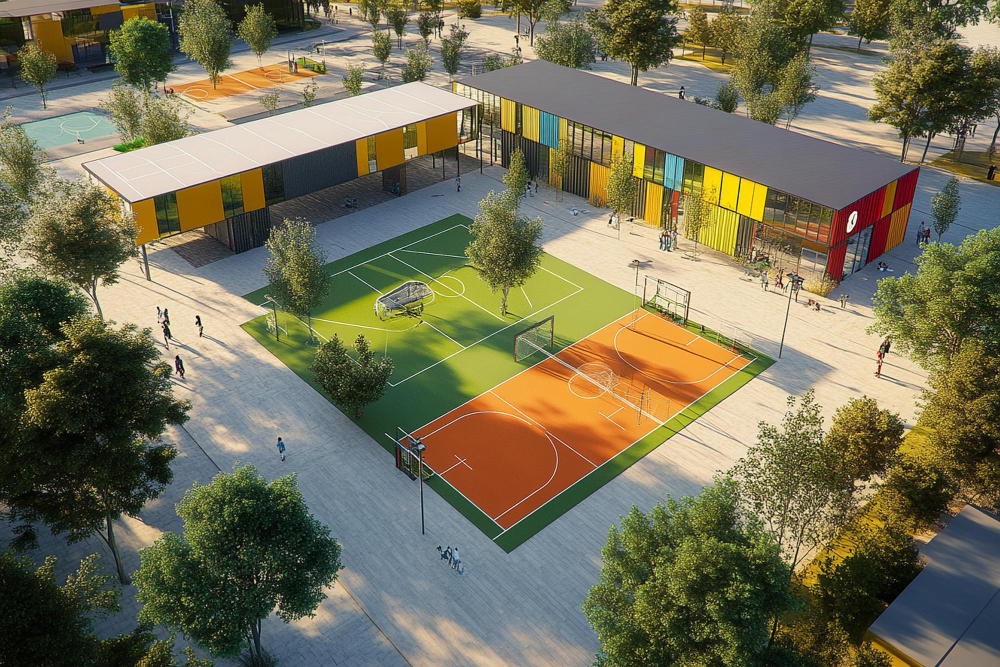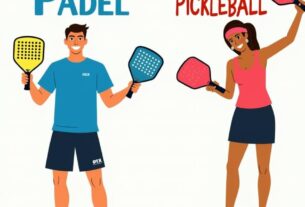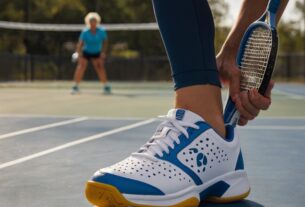The rapid rise of pickleball across the United States has sparked tensions, particularly in public courts, including those in the Bay Area. However, the pushback against this booming sport may soon reach private homes.
In Marin County, the wealthy town of Ross is considering either banning or regulating the installation of pickleball courts on private properties. Concerns have been raised about the constant noise from paddles hitting plastic balls, prompting the Ross Town Council to address the potential disturbance during their September 12th meeting.
While San Francisco has seen its share of public court disputes over noise and access, Ross is now focusing on the noise generated by private pickleball courts. According to Barry Wyerman of Pickleball Sound Mitigation, pickleball produces a sharp, repetitive noise that can reach up to 70 decibels within 100 feet of a court—nearly twice as loud as tennis. Wyerman recommends limiting the noise to 50 decibels, measured at the property line, to reduce disruption.
Interestingly, no homes in Ross currently have pickleball courts, and there have been no formal noise complaints, according to town officials. Yet, if a ban or regulations are put in place, Ross could become one of the first Bay Area communities to restrict private pickleball courts.
As pickleball continues to gain popularity, debates about its impact on residential areas will likely grow.
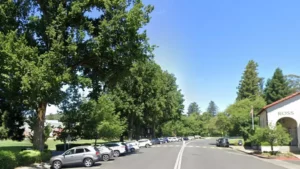
The growing debate over pickleball noise in Ross started last spring when Mayor Pro Tem Julie McMillan and Council Member Elizabeth Robbins requested a review of potential regulations for the construction of private pickleball courts. Their concern, outlined in a town staff report, focused on the noise disturbances the sport could generate in residential areas.
“Obviously, the noise is the big problem,” said Council Member Mathew Salter at the council meeting this month, echoing the concerns raised by residents.
Satellite imagery of Ross reveals that there are currently 11 tennis courts, seven basketball courts, and three smaller sport courts at private homes. Since tennis courts can be converted into two pickleball courts, this could double the sound produced by the game, as the thwack of plastic balls hitting paddles—usually made of graphite or fiberglass—travels at a higher frequency and sound level than tennis. This difference makes the noise more disruptive, according to the staff report.
While Ross is still weighing the need for noise regulations, other nearby Bay Area towns such as Mill Valley, San Anselmo, Hillsborough, Los Altos, Berkeley, and Atherton do not require permits for residential pickleball courts. However, in 2022, the Marin County town of Tiburon took a more cautious approach, passing legislation that mandates a sound study before a permit is issued for constructing a pickleball court at a private residence.
With pickleball’s popularity continuing to grow, more communities may soon face similar decisions about how to balance the sport’s appeal with concerns over its noise impact
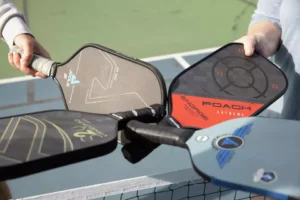
A recent Ross staff report highlighted findings from sound studies, noting that a pickleball court must be located at least 250 feet from the nearest property to comply with the town’s existing noise regulation, which limits noise to 55 decibels in residential areas.
Despite growing concerns, no specific proposals to regulate or ban pickleball courts on private property have been made. Council Member Mathew Salter expressed a desire to explore alternatives to a ban, saying, “I don’t want to ban it when there are other solutions.” He pointed out that quieter paddles and balls are available and could help reduce the noise impact.
Both Mayor Pro Tem Julie McMillan and Council Member Elizabeth Robbins, who initially raised the issue, deferred comments to Mayor Bill Kircher. Kircher explained that the council is still in the information-gathering phase, with no immediate plans for action. The matter has been continued to the council’s October meeting, allowing staff more time to gather data before any decisions are made.
“Should the Council decide that some form of regulation is warranted, then staff will draft specific measures for the Council to consider at a future meeting,” Kircher explained in an email.
With the topic scheduled for further discussion, residents can expect updates in the coming months as the town deliberates on how best to address the potential noise from private pickleball courts while balancing the interests of homeowners and the growing popularity of the sport.
As the pickleball noise debate continues, Council Member Mathew Salter emphasized the importance of hearing from more residents before any decisions are made at the next town council meeting on October 10. “My stance is I want more input from the public,” Salter said, adding that he also hopes to gather more information about the availability of quieter paddles and balls that could mitigate the noise concerns.
According to Barry Wyerman of Pickleball Sound Mitigation, many municipal ordinances across the country are not equipped to address the unique noise challenges posed by pickleball, which he warned “can become a very serious issue.” Wyerman expressed concern that homeowners might install lights on their courts, allowing games to extend late into the night, possibly disrupting neighborhoods past 10 p.m.
Wyerman suggested that pickleball courts should only be allowed at residences that are at least 1,000 feet from the nearest neighbor, unless sound barriers are installed or quieter paddles and balls are used. Without these precautions, the sharp, repetitive noise of pickleball could become a major issue for nearby residents.
As the council gathers more public feedback and considers potential solutions, including sound mitigation measures, Ross officials aim to strike a balance between the sport’s growing popularity and the peace of residential neighborhoods.
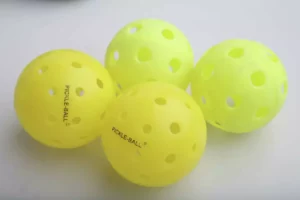
As pickleball continues its rapid rise, the sport’s governing body, USA Pickleball, has already established noise reduction standards for paddles and balls. These measures aim to address concerns about the noise that often accompanies the game, especially in residential areas.
In the Bay Area, Alister Sun, owner and general contractor of Center Court Sports in Alameda, has been installing sports courts for over seven years. He notes that, so far, no local municipalities have adopted specific regulations for pickleball courts, like those under consideration in Ross. However, Sun explains that most cities with large enough lots to accommodate residential sports courts, such as tennis and basketball courts, already have regulations in place. These generally involve setback requirements from the property line, which would apply to pickleball courts as well.
Sun shared a recent experience in Atherton, a town in San Mateo County, where a potential client withdrew from a project after anonymously contacting the local planning department and learning about setback requirements for residential sport courts. Sun described the situation as an exception, noting that most towns don’t have ordinances specifically targeting pickleball.
Rick DeGolia, a council member in Atherton, confirmed this. “I know of people who are putting in pickleball courts at their homes, and there is absolutely no ordinance to stop them,” he said. DeGolia, who is not a pickleball player, believes that existing setback requirements are sufficient. As long as homeowners obtain the necessary permits and respect the setback guidelines, their courts are typically approved.
Some residents are even installing pickleball courts in their driveways, further highlighting the sport’s integration into residential life. While the conversation around noise regulation continues, DeGolia and others believe that following general sport court rules should suffice for now, without the need for additional restrictions.
As cities like Ross deliberate over the issue, pickleball enthusiasts and residents alike are watching closely to see if new regulations will impact the installation of private courts.

